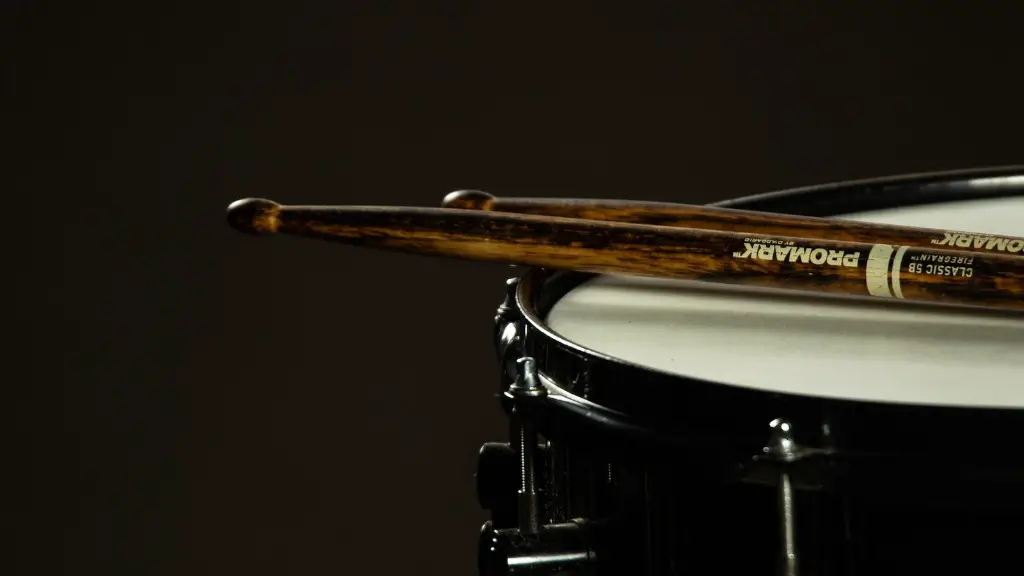Playing the trumpet requires proper maintenance, including oiling the valves. Oiling trumpet valves will keep them operating smoothly and help reduce wear and tear. Properly oiling your trumpet valves will make playing much easier and improve your sound quality.
To properly oil your trumpet valves you will need a valve-oil specifically designed for brass instruments. Make sure to use a quality oil designed specifically for brass instruments. Additionally, you will need a lint-free cloth or a piece of soft tissue paper.
Now you are ready to begin! Start by applying a small amount of valve-oil directly onto the cloth or tissue paper. Then, carefully rub the valve in circular motions with the cloth or tissue paper. Make sure to apply light pressure so as not to damage the valve.
Afterward, use a clean cloth or tissue paper to remove any excess oil from the surface of the valve. Repeat this process for each of your trumpet valves. When finished, give your trumpet one last wipe down with a dry cloth and you are done!
Preparing the Valves for Oiling
Oiling your trumpet valves is an important part of routine instrument maintenance. It can help keep your trumpet in good condition and improve its sound quality. Before you oil your valves, it’s important to make sure they’re clean and free of debris. Start by removing the valve cap and using a brush to clean the valve casing and piston. Make sure to get any buildup of dirt or grime off the piston and casing, then use a cloth to dry everything off before you start oiling.
Next, add a few drops of valve oil onto each valve – three drops should be enough to coat them properly. Finally, use a cleaning rod to work the oil into the valves by slowly moving it up and down several times. This will ensure that your valves are properly lubricated, allowing them to move smoothly when playing your trumpet. Be sure to wipe away any excess oil with a cloth, then replace the valve cap before continuing with playing.
Applying the Oil
Oiling your trumpet valves is an important step in maintaining your instrument. Applying the oil correctly helps ensure that the valves move freely and that air flows smoothly through the instrument. To properly oil your trumpet valves, start by cleaning off any dirt or dust with a soft cloth. Once the valves are clean, hold them in one hand and add a few drops of valve oil onto each valve. Then, use your fingers to spread the oil evenly over each valve. Finally, use a soft cloth to wipe away any excess oil on the outside of the valve. It’s important to be careful not to over-oil your trumpet valves, as this can damage them.
By following these steps and regularly applying oil to your trumpet valves, you can help ensure that they will remain in good condition for years to come! If you find that your valves are still sticking or not moving smoothly after oiling them, it may be time for a professional repair.
Cleaning Excess Oil from Trumpet Valves
Trumpet valves can become sticky due to the buildup of excess oil. To ensure your valves are performing optimally, it is important to regularly clean the excess oil off. To do this, you will need a soft cloth and some rubbing alcohol. Begin by wiping off any visible oil from the valve with the cloth. Once the visible oil has been removed, use the rubbing alcohol to clean remaining residue. Make sure to take extra care not to damage or scratch any part of the trumpet while cleaning it.
Rubbing alcohol can be used to remove any leftover oils or debris, but it is important not to use too much or leave it on for too long as this may cause damage to your instrument. When finished, be sure to dry the trumpet thoroughly before playing it again. Properly caring for your instrument will ensure that it performs at its best and lasts for many years.
Oiling Trumpet Valves
The oiling of trumpet valves is an important maintenance task that should be done regularly to ensure proper functioning. Proper lubrication helps valves move smoothly and evenly, reduces wear, and prevents corrosion. When oiling trumpet valves, it’s important to use the right type of oil and apply it correctly. The best type of oil to use is a special valve oil specifically designed for brass instruments. Before applying the oil, be sure to clean the valve casing and slide with a soft cloth. When applying the oil, place just one drop on each valve stem. Too much can cause build-up, creating a sticky residue that can impede valve movement.
It’s also important to remove excess oil from the valve casing after lubricating the valves. This can be done using a soft cloth or cotton swab. Finally, it’s essential to keep your trumpet in a case when not in use to prevent dirt and dust from getting into the valves. Taking these steps will help ensure your trumpet valves remain smooth and in good condition for years to come.
How Often Should You Oil Your Valves
Oiling your trumpet valves is an essential part of regular maintenance for your instrument. Doing so helps ensure smooth action and provides protection from sticking. Generally, it’s best to oil your valves every two weeks with a light machine oil. This will help keep the valves in top condition and prevent any air leaks.
When applying oil, use a few drops on each valve and rotate them several times. This will help distribute the oil evenly and allow it to penetrate into the moving parts. For a deeper cleaning, you can remove the valves and soak them in oil overnight before reassembling them. Make sure to use a clean cloth or paper towel to wipe off any excess oil after each application.
It’s important to remember that some trumpets have different specifications for valve care, so you should always check with the manufacturer for exact instructions before proceeding with any maintenance tasks. Additionally, be sure to remove all dirt or debris from around the valves before you start, as this can interfere with proper lubrication.
Benefits of Oiling Your Trumpet’s Valves
Oiling your trumpet’s valves is an important part of maintaining the instrument. It keeps the valves moving smoothly, eliminates sticking and decreases wear and tear on the valves. Oiling also prevents costly repairs and helps to extend the lifetime of your instrument. It is especially important for professional musicians who use their instruments frequently.
To oil your trumpet’s valves, you need a few simple tools. You will need a soft cloth, valve oil, and a few cleaning supplies such as pipe cleaners or cotton swabs. Begin by wiping off any dirt or grime from the valves with the cloth. Then use the pipe cleaners to clean out any gunk that may have built up inside them. Finally, use several drops of valve oil to lubricate them. Make sure to evenly coat each valve with oil before playing.
Regularly oiling your trumpet’s valves can keep it in top condition for years to come. This simple maintenance task will help ensure that you get maximum performance from your instrument while avoiding costly repairs. So don’t forget to oil those valves!
The End
To properly oil trumpet valves, it is important to use a light oil to prevent any buildup of dirt and debris. Ensure that the valve is in the correct orientation and apply the oil to the valve stem between each of the three pieces. Afterwards, use a cleaning cloth or brush to wipe off any excess oil that has accumulated. Finally, reassemble the valve and check for proper operation. With regular maintenance, your trumpet valves will last for many years.
In conclusion, ensuring that your trumpet valves are properly oiled is essential in keeping them running smoothly and avoiding potential problems down the road. Taking a few minutes each week to properly maintain your instrument can save you time and money in the long run.





